- List your property - it's free
- Sign up or Log in
-
English- en
-
THB - ฿
- Buy
- Thailand Property For Sale
- Thailand Real Estate
- See Newest Listings
- Why Buy with FazWaz
- Rent
- Sell
- Projects
- Advice









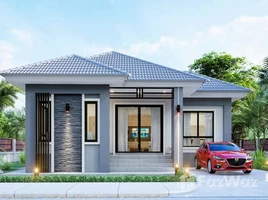
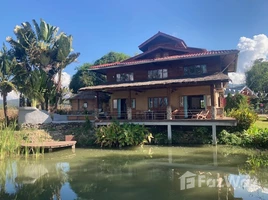




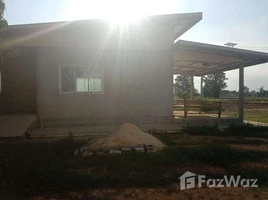




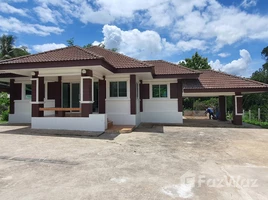









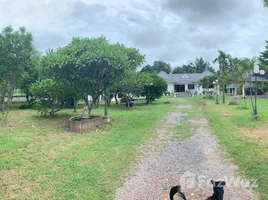


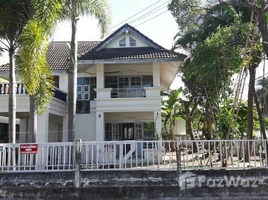









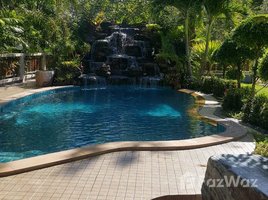




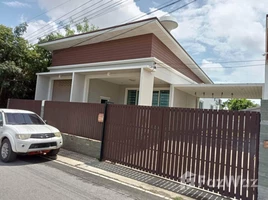





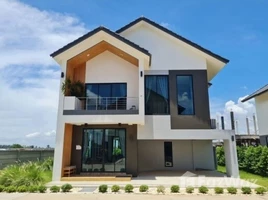









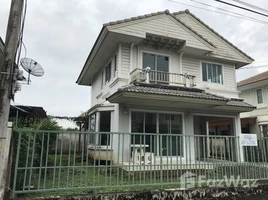







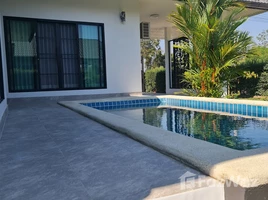









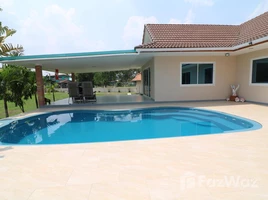




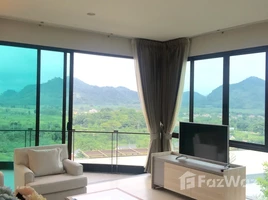




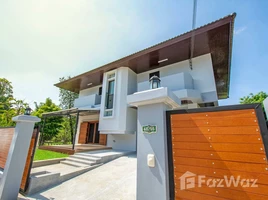







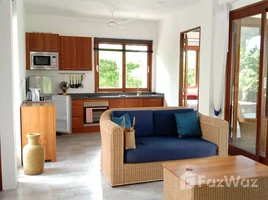




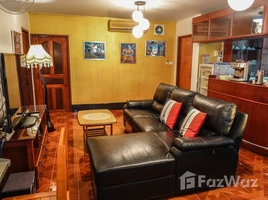










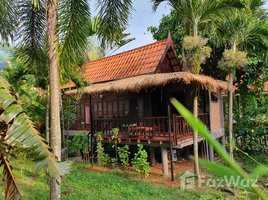




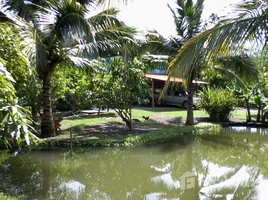





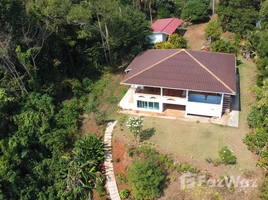




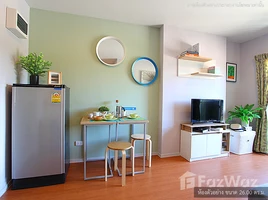




Learn more about the Thailand property market through trends and average prices.

Formerly called Siam, the Kingdom of Thailand is the tourism hotspot of Southeast Asia. With its beautiful tropical islands, lush jungles, intriguing history, rich culture, glittering temples, and scrumptious cuisines, Thailand attracts more than 30 million visitors annually and the country has numerous world-famous landmarks, such as the 9th tallest statue in the world, which is known as the Great Buddha of Thailand as well as the iconic temple of Bangkok, Wat Arun. Not only known for its natural beauty and fascinating culture, but the country is also dubbed as “The Land of Smiles” because the locals are very friendly, which makes all visitors feel welcome upon arriving in the country. In addition, the country welcomes a huge number of expats and retirees due to its low cost of living.
Thailand has the second-largest economy in Southeast Asia after Indonesia. Its convenient location in the heart of Asia has given the country favorable trading opportunities with China, India, and other ASEAN countries. Thanks to the country’s fast-growing economy, it attracts foreign investors from all around the globe. In fact, it is one of Asia’s most popular destination for foreign investors.
Thailand has a population of more than 68 million people spread across its 76 provinces. Bangkok is the capital as well as the largest city in the country. The capital is also one of the most visited cities in the world thanks to its number of tourist attractions. Visitors are welcome to explore its palaces, temples, markets, and shops. The city also boasts one of the most vibrant nightlife scenes as well as having the best street foods on the planet. Some of the more popular landmarks in Bangkok are the Grand Palace, Wat Pho, and Wat Traimit (Golden Buddha).
The city of Chiang Mai is famous among those who want to experience a more laid-back atmosphere. Chiang Mai offers an opportunity for visitors to indulge in Thailand’s culture because it has a large number of ancient landmarks, such as the Pae gate and the Doi Suthep pagoda.
For visitors who want to be near Thailand’s most famous beaches, Pattaya and Hua Hin are two of the popular seaside resort cities in the country. However, for visitors who want to experience the country’s tropical islands, Phuket and Koh Samui are the places to visit and both have their own unique characteristics, white sandy beaches, and clear waters.
Thailand caters to all types of investors and since Thailand’s laws only allow foreigners to own condominiums; this type of property is almost always in demand. High rise condominiums and apartments are mainly located in metropolitan cities, such as Bangkok and Pattaya. Condominium and apartments in other parts of the country are mainly built in low-rise buildings. Both condo and apartments can have luxurious facilities, such as swimming pools and fitness centers. In general, condos and apartments are divided according to the types of rooms, including studio, 1 bedroom, 2 bedrooms, or more than 3 bedrooms.
Single houses in Thailand tend to have 2 floors, with 2 to 3 bedrooms, 2 bathrooms, a kitchen, and a living room. This type of property usually comes with its own garden and offers more space. Townhouses (or townhome) are also available. Townhouses are a row of houses joined by a shared wall and usually have modern and luxurious designs. A home office is popular among those who want to live and work at the same place since normal residential projects are not allowed to be used for commercial purposes. There are also commercial buildings and offices for sale in the country, usually located in business areas.
Since Thailand has a relatively low cost of living compared to Western countries, although the cost of living depends on the person’s lifestyle, the living standards for foreigners are typically high. The location in which someone lives also determines the overall cost of rent, transportation, food, and other miscellaneous personal expenses. Places in the center of Bangkok typically have higher prices. The local food is world-famous and affordable. People can have Pad Thai for as low as 40 THB (1.3 USD). Thailand’s official currency is the Thai Bhat. 1 USD will get foreigners approximately 30.6 THB.
Thailand has a tropical climate, meaning the weather is consistently hot throughout the year. the average annual temperatures are between 28°C and 35°C, but the temperatures can soar to 40°C during the Hot Season from March until June. The rainy season normally starts in July and ends in October. Visitors should be ready to experience heavy rainfall and high humidity levels during this season. The cool season from November and lasts to February and has less rain.
The country is very rich in culture and the Royal Family should never be disrespected. Touching someone’s head and pointing with your feet is considered rude. The largest religion is Buddhism with around 95% of the population follows the religion. Islam is the second-largest religion, comprising 4% of the population. The official language is Thai and the script is based on the Brahmi script. However, since the country is a large tourism hotspot, English is spoken by locals, especially those who work in tourism.
For a long-term stay, foreigners will need a business, education, marriage, or retirement visa. Most expats who work in Thailand have Non-Immigrant Type B, but investors can apply for Non-Immigrant Type IB. Retirees usually apply for Non-Immigrant Type O, O-A, and O-X.
1. A Growing Economy – Thailand has one of the largest economies in Asia, in fact, it is the 8th largest economy in Asia. In 2018, the country produced 16.316 trillion of GDP.
2. Improving Infrastructure – Thailand is constantly improving its infrastructure, from the road systems, electrical and water systems, healthcare, to its public transportation. The local governments, along with real estate developers and corporate companies are involved in significant development.
3. Rental Yields – For those who want to rent out their properties, you can expect to earn around 5% annually.
Yes, foreigners can indeed purchase property in Thailand, but it is essential to be aware of certain restrictions and processes in place to safeguard the country's interests. Buying property in Thailand can be a rewarding investment; however, understanding the limitations and legal procedures will ensure a hassle-free experience.
Firstly, it is important to note that while foreigners can buy condominium units without significant restrictions, owning land is not a direct option. A foreigner can own the condominium outright, provided that 51% or more of the building's total floor space is owned by Thai nationals. This rule is in place to preserve the balance between local and international property ownership.
As for buying land, Thai law prohibits direct ownership by foreigners. Nevertheless, there are alternative routes for foreign investors to explore. One such option is to set up a Thai Limited Company, wherein the foreigner can have up to 49% ownership, while the remaining 51% should be owned by Thai nationals. This arrangement allows the company to own the land, while the foreigner maintains control over the property through their shares in the company. It is essential to seek professional legal advice to ensure compliance and protect your investment.
Another approach is to enter into a long-term lease agreement, typically for 30 years, with the option to renew. This lease is registered with the Land Department, providing a degree of security for the foreign lessee. While this option does not grant direct land ownership, it enables usage and control of the land for an extended period.
In summary, foreigners can buy property in Thailand, particularly condominium units, with relative ease. However, land ownership requires alternative arrangements, such as setting up a Thai Limited Company or entering into a long-term lease agreement. We recommend consulting with a reputable property lawyer to guide you through the process and ensure a smooth transaction while adhering to Thai laws and regulations.
As a thriving property market, investing in real estate in Thailand has undeniably gained popularity among international investors. Whether it's worth buying property in this Southeast Asian paradise depends on your personal goals, financial situation, and specific property choice. To help you make an informed decision, we have shed light on some key factors that reveal the true value of owning property in Thailand.
1. Return on Investment (ROI): Thanks to the robust tourism industry and a growing expat community, demand for rental properties in Thailand remains high. This translates to attractive rental yields, particularly in prime locations such as Bangkok, Pattaya, Phuket, and Chiang Mai. Investors can expect average rental yields ranging from 5% to 8%, depending on the property type and location.
2. Capital Appreciation: Over the past decade, Thailand's property market has experienced continuous growth in property values. With ongoing infrastructure development, particularly in and around Bangkok, investors can expect potential capital appreciation for well-selected properties in strategic locations.
3. Affordable Luxury: When compared to other international property markets, Thailand offers affordable luxury properties with high-quality amenities that cater to the modern lifestyle. Buyers can find a wide range of property types, from beachfront villas and condominiums to city-center apartments, at relatively lower prices.
4. Easy Accessibility: Thailand's well-established connectivity via air, land, and sea contribute to its attractiveness for both tourists and investors. With competitive prices on flights and the upcoming expansion of high-speed rail networks, accessibility to major cities and popular tourist destinations in Thailand are set to become more convenient.
5. Quality of Life: Offering a unique blend of rich culture, delectable cuisine, and breathtaking natural beauty, Thailand is an attractive destination for those seeking a high quality of life. The country's reputation as a friendly and affordable place to live encourages many foreigners to call Thailand their second home.
In conclusion, buying property in Thailand can indeed be a worthwhile investment, offering a combination of rental income,
Purchasing property in Thailand can be a relatively straightforward process; however, it does require careful navigation of certain legal restrictions and adherence to specific procedures. With the proper guidance and knowledge, acquiring real estate in Thailand can be an achievable goal for many investors and homebuyers.
Foreign nationals should be aware that there are certain ownership limitations in place. For instance, while foreigners can own condominium units outright, they cannot directly own land or hold a full freehold title to landed property. However, there are alternative methods for foreign nationals to invest in Thailand's property market, e.g., long-term leases and forming a Thai-registered limited company.
When considering purchasing a condominium, it is essential to ensure that the ratio of foreign ownership does not exceed 49% of the total area of the building. Other property types, such as detached and semi-detached houses, can be acquired through a long-term leasehold (usually 30 years, renewable), or by setting up a Thai limited company to hold the landownership, while the foreigner maintains substantial control over the company.
It is highly recommended to engage the services of a reputable and experienced real estate agent to assist you in navigating the Thai property market. They can provide valuable insights, legal advice, and support throughout the entire process. Additionally, engaging a qualified Thai lawyer is essential when dealing with contractual obligations and ensuring that all due diligence is carried out, including verifying property titles, investigating potential encumbrances, and confirming proper zoning and planning permits.
In terms of financing, foreign buyers may face some challenges in securing a mortgage from Thai banks. Therefore, it is vital to explore alternative financing options, such as obtaining a loan from your home country or seeking a developer or seller who offers payment plans.
In summary, buying property in Thailand can be an achievable endeavor for foreign nationals, provided that they are aware of the legal restrictions, follow the proper procedures, and seek professional guidance. By taking these factors into consideration, investors and homebuyers
In recent years, Thailand has experienced fluctuations in its real estate market, particularly in the residential sector. While it is essential to consider the dynamic nature of the market, current data and economic factors suggest that house prices in Thailand have been facing a downward trend.
Several factors have contributed to the decline in the property market. The continuous increase in the supply of new residential units could be one significant reason, leading to an oversaturated market in major cities, such as Bangkok. Developers are now struggling to sell off their remaining inventory, which has ultimately led to a decrease in average house prices.
Another contributing factor is the global economic slowdown, which has had a direct impact on consumer confidence and purchasing power. Buyers and investors are exercising caution and opting for more affordable housing options or delaying their property investments. Additionally, the ongoing Covid-19 pandemic has further exacerbated the challenges faced by the real estate sector in Thailand, as tourism, an essential driver of economic growth, has been severely affected.
Furthermore, the tightening of mortgage lending regulations by the Bank of Thailand in 2019 has made it more challenging for homebuyers, particularly first-time buyers, to secure loans. This has resulted in a decrease in demand for residential properties, leading to a decline in house prices.
It is worth noting that the situation could vary depending on the location and type of property. While the overall trend appears to indicate a fall in house prices, some high-end properties and specific localities might still experience stable or even increasing prices.
In conclusion, although it is difficult to make a blanket statement about the direction of house prices in Thailand, prevailing economic factors and market conditions suggest a downward trend in the short term. However, potential buyers and investors are encouraged to closely monitor market developments, conduct thorough research, and consult with real estate professionals to derive the most accurate insights into the property market.